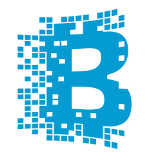| Linux Foundation Backs Blockchain Project |
| Written by Kay Ewbank | |||
| Monday, 21 December 2015 | |||
|
The Linux Foundation is backing a project to create a financial transaction ledger based on the Blockchain model used to power Bitcoin. The project, for which IBM is a major contributor, involves a number of big name partners in both tech and finance, including ANZ Bank, Cisco, CLS, Credits, Digital Asset, Fujitsu, IC3, IBM, Intel, London Stock Exchange Group, Mitsubishi UFJ Financial Group (MFUG), State Street, SWIFT, VMware and Wells Fargo.
Blockchain is a digital technology for recording and verifying transactions, and is used as the distributed transaction processing engine behind cryptocurrencies such as Bitcoin. Essentially, a blockchain takes a database and copies it across multiple machines so that there's no one controlling entity. The data is encrypted, and the blockchain technology tracks who is making payments, who is getting paid, and what individual balances are. This is a distributed ledger. The new project will be based on blockchain. It has a provisional name of Open Ledger, will be developed as open source, but will be used in a 'semi-private' mode. The Open Ledger Project will offer an alternative way to manage supply chains and contracts as well as financial transactions. The aim of the partnership is to create a standardized version of blockchain tools so that further down the line, compatibility isn't an issue.
The Linux Foundation says the companies working on the project will: “help identify and address important features and currently missing requirements for a cross-industry open standard for distributed ledgers”. IBM is the major contributor to the project, as it already has thousands of lines of existing code from research it has been doing for years into the blockchain technology. Writing about the project on the IBM DeveloperWorks blog, Jerry Cuomo, CTO of MiddleWare at IBM, said that the code-base being contributed by IBM is an OBC (open block chain) that has been: "built from the ground up with business use-cases in mind. IBM is also contributing a set of patents, which are embodied in the contributed code. We’re developing the code in golang, which is proving to be an effective way to write this highly distributed system. Our purpose in contributing OBC is to provide a starting point, not a destination, with a plan to journey to our destination as a community". Cuomo say OBC is different from other blockchain technology by explicitly supporting permissions and roles, and secure transactions. He says OBC is extensible because it introduces the notion of chaincode as a means to write business logic that issues transactions and manipulates data within a blockchain: "Chaincode is currently written in golang and runs in secured Docker containers. We hope the community will further extend chaincode to support logic written in Java, Javascript and other languages. Chaincode provides a foundation for smart contract languages written in higher level, domain specific languages". He also says OBC is modular and designed so that key system aspects can be replaced, including consensus algorithms, data storage and identity management: "For example, OBC currently offers two implementations of PBFT (Practical Byzantine Fault Tolerant) consensus, as a means to validate transactions across the blockchain network. We also have other points of extensibility including identity management and cryptography algorithms". The aim is to create tools that businesses will be able to use to build their own distributed ledgers that are both connected and distributed. This means business users can easily keep track of changes to the underlying transactions. The model should also make it harder to delete, alter or add fraudulent entries. Ledgers created using the Open Ledger Project will be controllable in terms of who has access to the ledger, and companies will be able to set up rules to specify who can generate transactions and who can authenticate them. The project does not have any deadline or proposed completion date.
More InformationRelated ArticlesBitcoin Fork Due To Algorithmic Differences Replace By Fee - Bitcoin Modifications Bitcoin Isn't As Anonymous As You Might Hope Chain Easy Bitcoin Development Bitcore For Developing Bitcoin Apps UPDATE 2: Is Bitcoin Broken - A Response And A Conference Inside Bitcoin - virtual currency
To be informed about new articles on I Programmer, sign up for our weekly newsletter,subscribe to the RSS feed and follow us on, Twitter, Facebook, Google+ or Linkedin.
Comments
or email your comment to: comments@i-programmer.info |
|||
| Last Updated ( Monday, 21 December 2015 ) |



